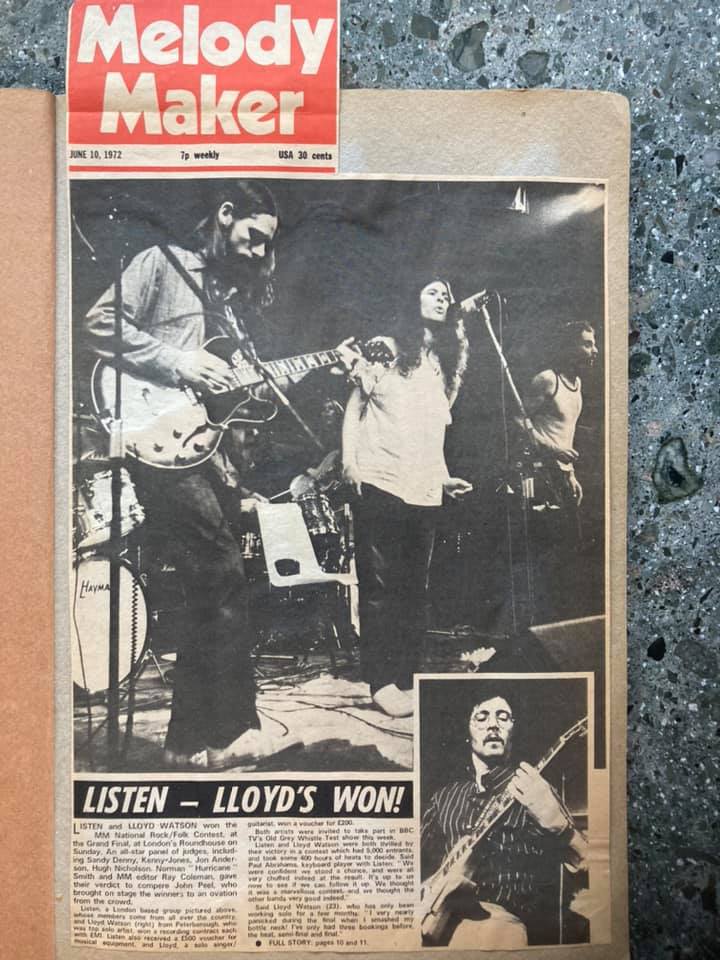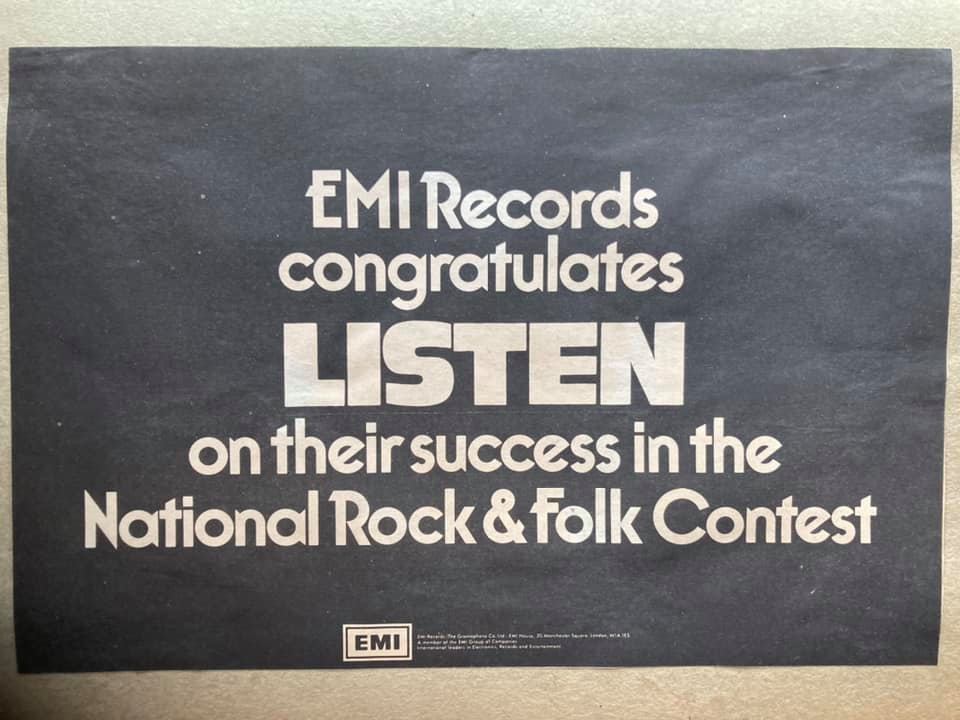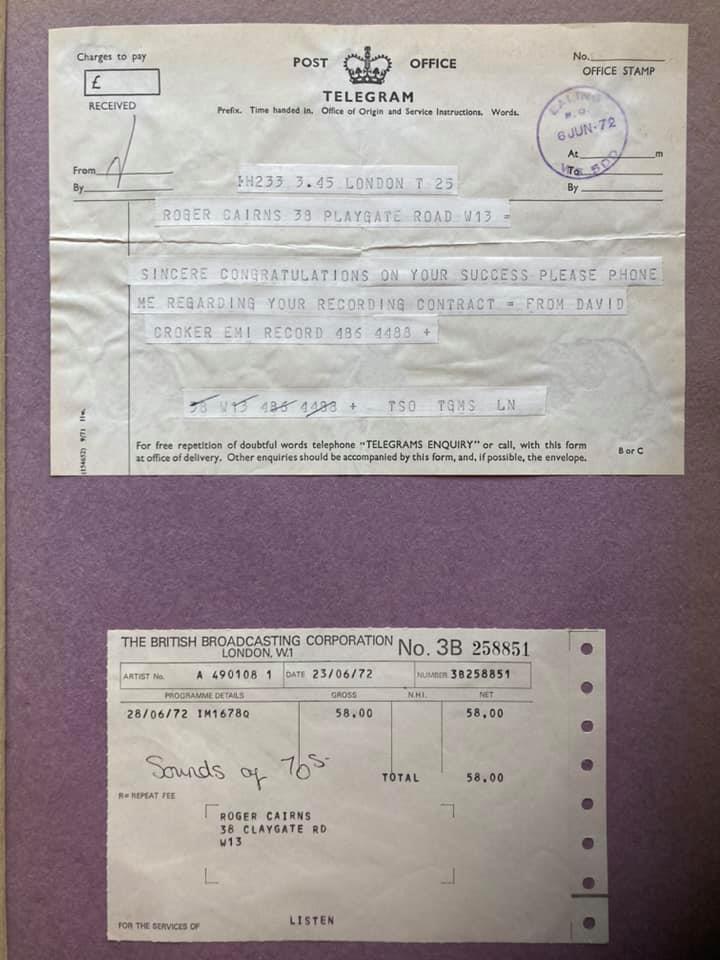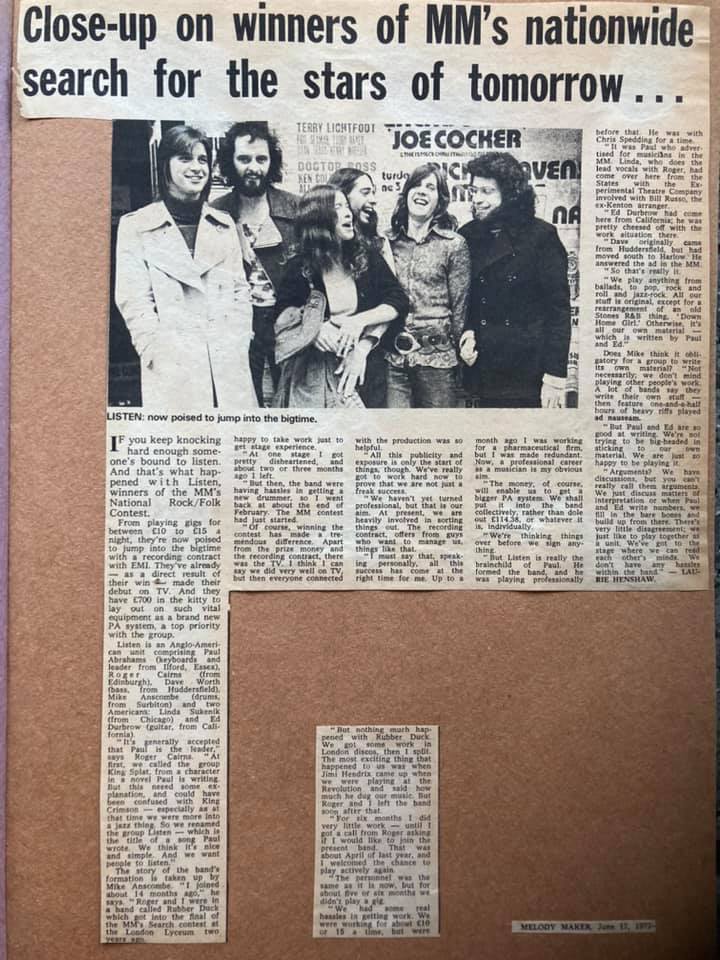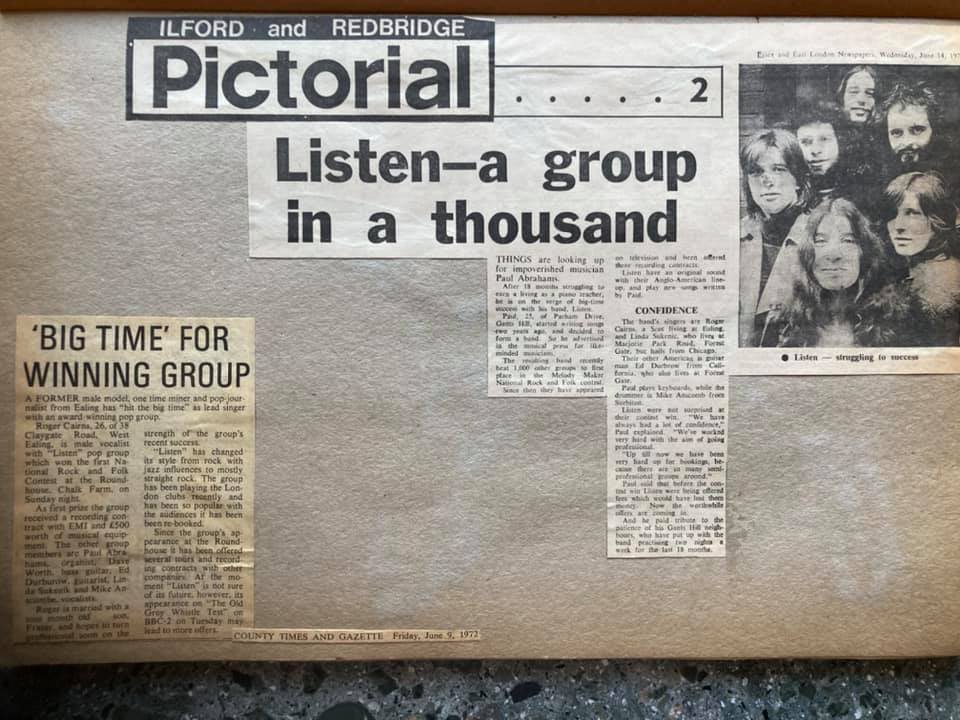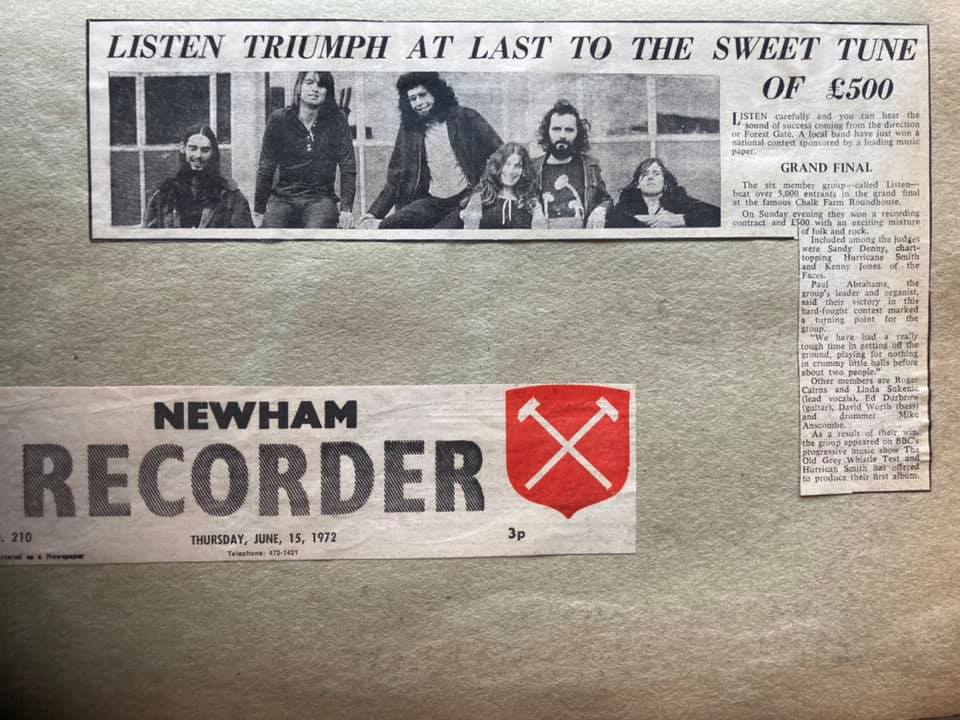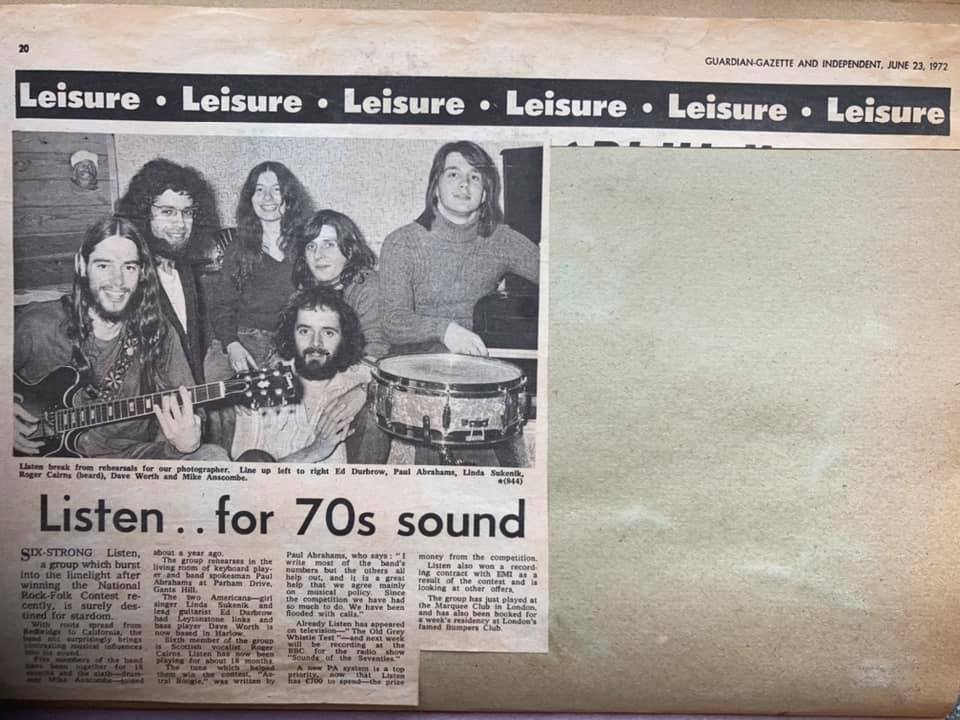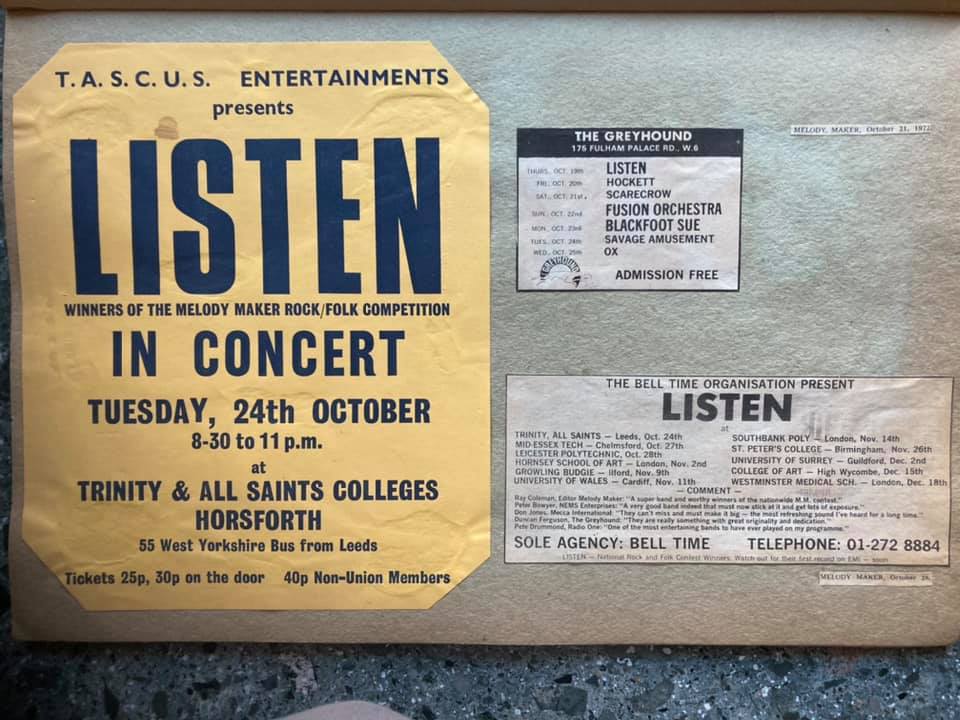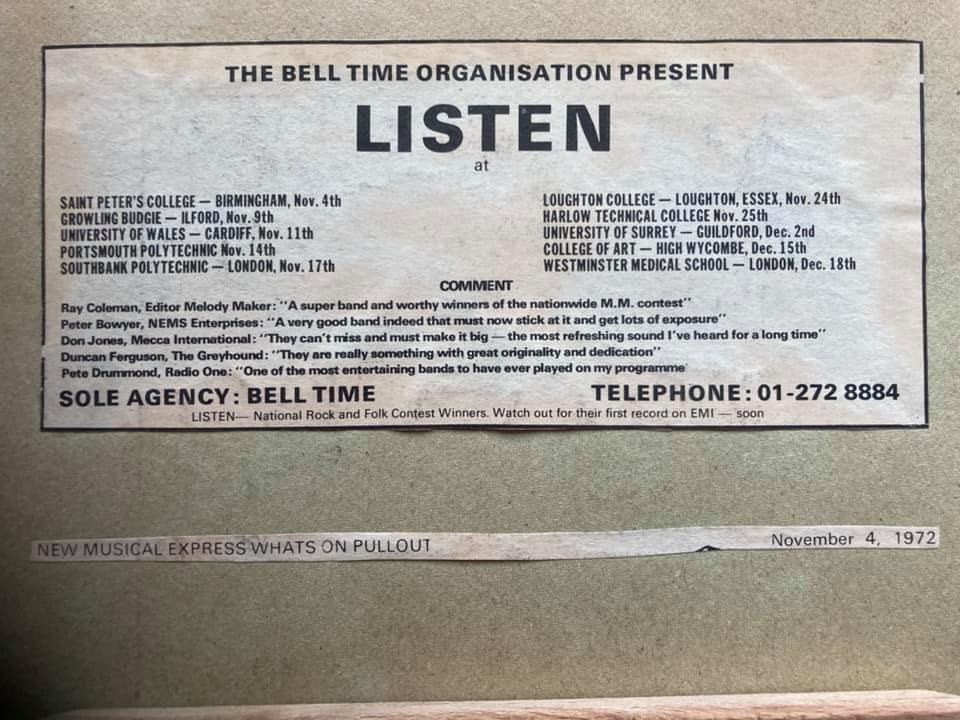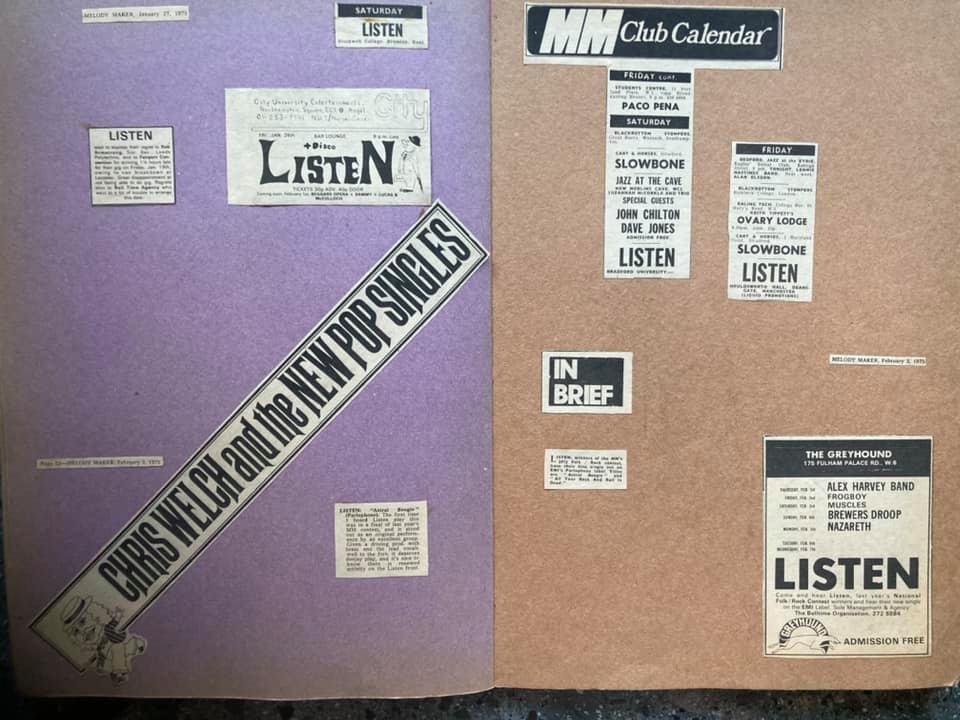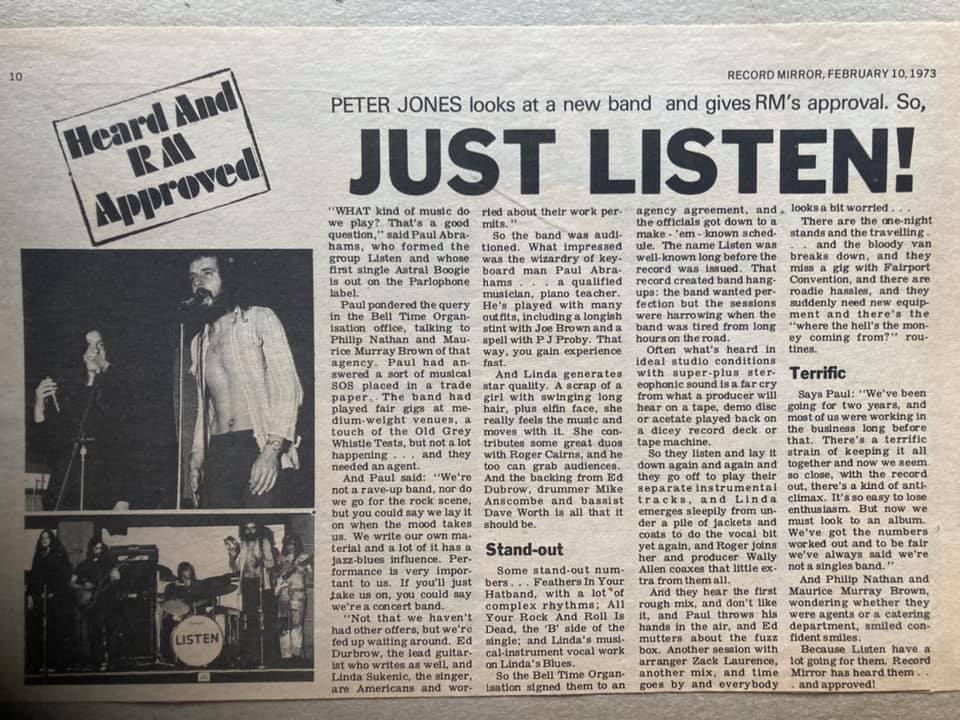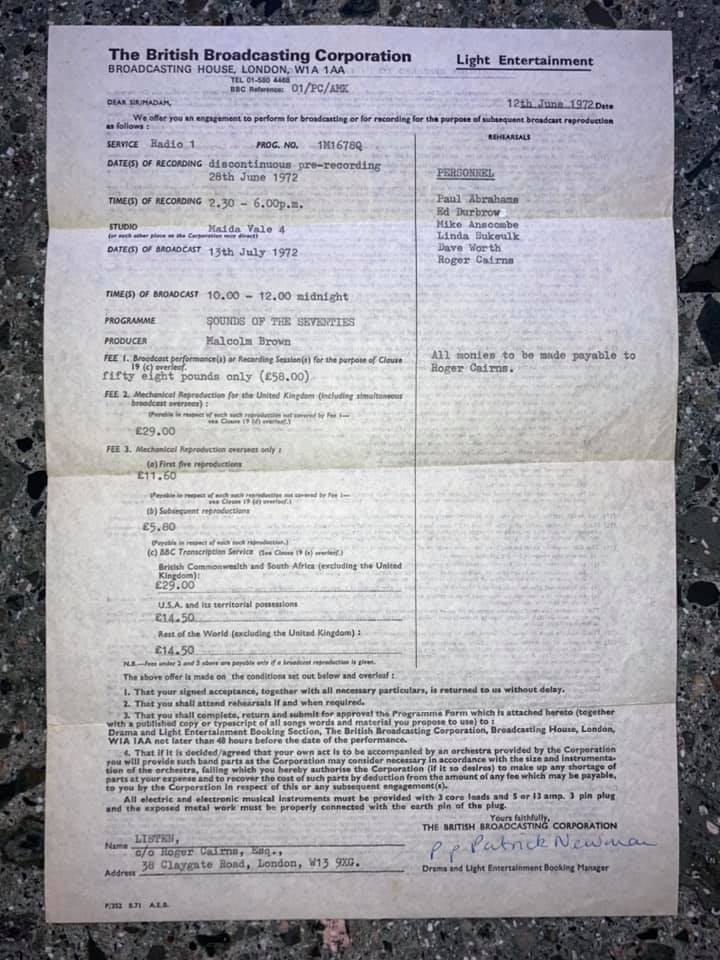Out of the Camp Ch. 9 – MM Rock Contest
It was a long, arduous evening as we listened to and assessed the competition that we were up against. From a total of 26 groups who qualified for the semi-final, this number was whittled down to twelve for the grand finale. John Peel brought on each group as they were announced and conducted a brief interview with the leader before introducing each member, then they’d call the first tune. This pattern was repeated until all 12 groups had performed. I can’t recall now exactly where we were placed in the running order, but we were close to the end, possibly even last on, and I do remember the audience response following our set which was thunderous, and that was immensely gratifying. In any event the final performance was immediately followed by an interval during which time the judges conducted their deliberations and made their final decision. At this point, John Peel brought the hall to order and introduced Ray Coleman, editor of the Melody Maker who came onstage to join him and, while John made the announcements, Ray Coleman would award the prizes.
The tension in the hall was palpable and John was dragging it out to maximize the suspense. A female assistant came onstage clutching a bunch of envelopes and she was accompanied by two other men. As John moved to the mike, a hush descended over the hall and he began to speak, explaining that only the top three acts would be placed, the remainder being awarded a variety of prizes for notable performances. Third prize of £200 was awarded to Brave New World from Scarborough, Yorkshire. Second place was announced and that prize of £300 went to Halcyon from Stevenage in Hertfordshire. He then went on to award specific prizes for individual outstanding performances. These were donated by Jim Marshal of Marshall Equipment and Larry Westland of the Musical Instruments Promotion Association. Retrospect’s guitarist received a Telecaster; Team Dokus’ bassist, a Precision Bass; Toad Hall guitarist, an Epiphone guitar; Cowboys Don’t Cry guitarist, a Callan Salisbury guitar; Halcyon’s singer, an SWKI mike. Other groups and soloists received equipment vouchers of varying value.
By this time, we were fit to be tied, wishing the entire ordeal was over for better or worse. We just wanted to be put out of our misery. We could see some of the other groups in scattered clusters around the hall with supporters, waiting to find out if they had been successful or alternatively, if they were facing a long journey home in the knowledge that ‘it’ wasn’t to be. Not this time anyway. When everyone onstage had finished with the congratulations, back-slapping and hand shaking, and Ray Coleman and the equipment company reps had left the stage, John Peel finally approached the mike again. He announced that we’d reached the climax of the evening and the conclusion of the competition, and all that remained was to reveal who the winners of the 1972 Melody Maker Rock/Folk Contest were. He continued, saying that the winners would each appear on the following week’s broadcast of BBC TV’s ‘Old Grey Whistle Test’, and BBC Radio 1’s ‘Pete Drummond Show’, that they’d each receive a £200 voucher from the Rose-Morris Corporation and also, that the winning group would receive a £500 voucher for musical equipment and the soloist, an additional £200 voucher.
John then continued, “The winner of the solo folk artist section of the competition is Lloyd Watson, and the winner of the group rock section is Listen.” I remember the cheering, the hugging, the jumping up and down, the pandemonium and the absolute ‘buzz’. There were complete strangers coming up to us, congratulating us, asking all sorts of questions that I now know my state of mind at that moment wouldn’t have been sufficiently coherent to respond to. Eventually we returned to the stage to receive our prizes and then just circulate in the crowd which had now migrated there. Business cards were being thrust into our hands. Apparently, we received an offer from Decca Records right there and then, under the noses of EMI who had been the ones to put up the recording contract prizes. We didn’t feel it would have been right to accept that offer under the circumstances, but we really could have used a smart manager right at that moment.
There was a whirlwind of activity over the next couple of weeks doing interviews with countless newspapers, both music biz, national and local, and scheduling both the TV and radio appearances, plus EMI demo recording sessions at Manchester Square, and pre-recording the Pete Drummond ‘Sounds of the 70s’ radio show feature at BBC Maida Vale Studios. We started fielding calls from Social Secretaries of numerous universities and colleges, clubs wanting to book us, and prospective managers approaching us with offers. Dick Ashby of the Stigwood Organization came to see us in a Southall pub, but nothing came of it. Tony Reeves, Coliseum’s bass player, thought he might be able to help get us signed and came to a gig at the Marquee in Soho, but that also fell flat. Meanwhile, phones were ringing off the hook and the situation had become overwhelming and, as Paul had some connections with an agency called Bell Time, and to cut another long story short, we signed with them.
The following week we appeared on BBC2’s ‘The Old Grey Whistle Test’ along with Lloyd Watson, the winner of the folk, soloist section of the competition. Before we played, Paul was interviewed by Richard Williams, the show’s original presenter and who became the producer when ‘Whispering Bob’ Harris took over as the show’s anchor a year later. The following week we recorded our slot for Pete Drummond’s radio programme which was broadcast nationally on Radio 1 a couple of weeks later.
By this time, all in all, we’d done quite a bit of recording, mainly in demo studios for interested parties such as, managers, producers and the like. We’d even auditioned for Simon May of EMI, but that was well before the competition. I recall working in Central Sound in Denmark Street, London’s ‘Tin Pan Alley’, also Pathway, and Gooseberry Studios from whom we’d earlier received an offer which we’d turned down. There was also an album deal on offer from Morgan Studios, but Zack Lawrence who was later to write the orchestrations for our yet to be released single on Parlophone, wanted to get paid for his work. That might have been fortuitous since, as a result of signing with EMI, we actually recorded the single in the famous Abbey Road, Studio 2, where The Beatles and countless other major artistes had worked.
https://www.facebook.com/ListentheLondonband/
Images.
(1) Melody Maker front page June 10, 1972 with our guitarist, Ed, front stage, Dave, our dear bass-player who we lost many ears ago (you can just make out his head above the drum kit), Sweet Linda, our beautiful singer who we lost recently, and me on the right. Paul, our maestro, didn’t make the pic, nor Mike our Saint Vitus afflicted drummer! The remainder of this file consists of Contest related materials including announcements, communications, editorial material, record reviews, gig listings and a BBC Contract for our appearance on the Pete Drummond Show.







